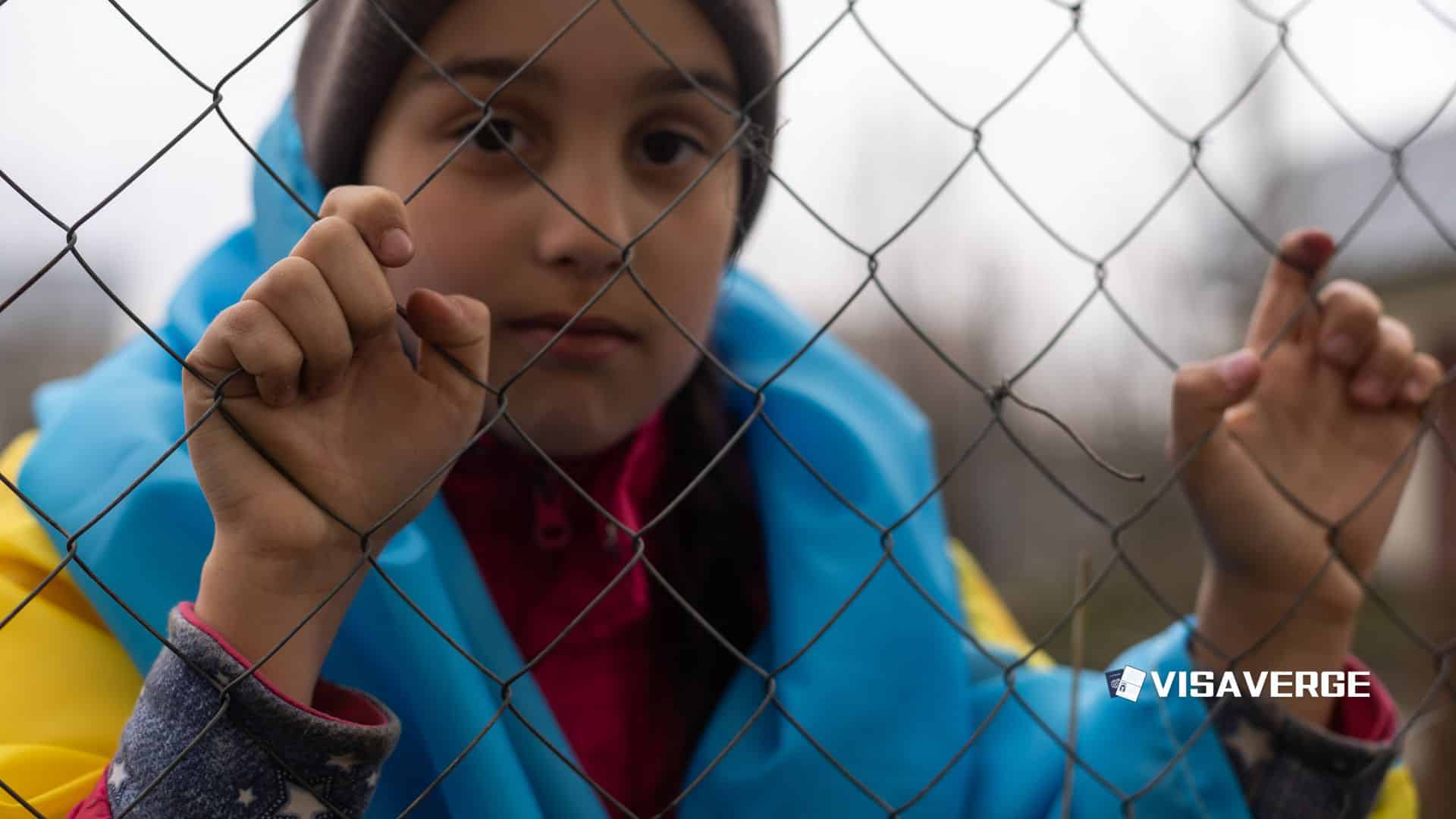Key Takeaways
• Starting January 21, 2025, only spouses of certain international students and high-skilled workers qualify for open work permits.
• Dependent children of foreign workers are no longer eligible for open work permits under the new rules.
• Eligibility narrows to critical sectors and longer academic programs; existing permits valid until expiry, renewals follow new criteria.
Canada’s 2025 Restrictions on Open Work Permits for Spouses: An Analytical Review
Purpose and Scope

This analysis examines the sweeping changes to open work permits (OWPs) for spouses and family members of temporary residents in Canada 🇨🇦, with a focus on reforms announced by Immigration, Refugees and Citizenship Canada (IRCC) and implemented on January 21, 2025. The review covers the policy’s purpose, the methodology behind its creation, the main findings, and the practical effects on international students, foreign workers, and their families. It also presents data, visual summaries, and a balanced discussion of the policy’s implications, limitations, and future outlook.
Methodology
This content is based on official IRCC announcements, government policy documents, and recent news coverage up to June 2025. The analysis draws on published eligibility criteria, procedural steps, and stakeholder statements. Quantitative data, where available, is included to illustrate trends and expected impacts. The review uses a comparative approach, contrasting the new rules with previous policies, and incorporates perspectives from affected groups, policymakers, and immigration experts.
Key Findings Upfront
- Major Restriction: As of January 21, 2025, only spouses of certain international students and high-skilled foreign workers are eligible for family OWPs.
- Dependent Children Excluded: Dependent children of foreign workers are no longer eligible for open work permits.
- Narrowed Eligibility: The list of qualifying occupations and academic programs has been reduced to focus on critical sectors and longer, high-priority educational programs.
- Transition Rules: Existing OWPs remain valid until expiry, but renewals must meet the new criteria.
- Policy Goal: The reforms aim to manage rapid temporary resident growth, address housing shortages, and better align immigration with labor market needs.
Data Presentation and Visual Descriptions
To help readers quickly understand the new eligibility landscape, the following summary table outlines who can and cannot obtain an open work permit as of January 21, 2025:
| Category | Eligible for OWP (as of Jan 21, 2025) | Key Conditions |
|---|---|---|
| Spouses of International Students | Yes (restricted) | Only for master’s (16+ months), doctoral, select professional programs |
| Spouses of Foreign Workers | Yes (restricted) | Only for TEER 0/1, select TEER 2/3 in critical sectors; 16+ months left on permit |
| Dependent Children | No | Not eligible for OWP |
| Spouses under Free Trade Agreements | Yes | Not affected by new rules |
| Spousal Sponsorship (PR) | Yes | Unchanged; remains a stable pathway |
Comparisons, Trends, and Patterns
Historical Context:
– Before 2025: Spouses of most foreign workers and international students could easily get open work permits, and dependent children were also eligible.
– September 2024: IRCC announced plans to tighten eligibility, signaling a shift in approach.
– January 21, 2025: New rules took effect, marking a clear move toward stricter family reunification for temporary residents.
Current Trends:
– Temporary Resident Surge: Temporary residents now account for nearly 98% of Canada 🇨🇦’s population growth, according to government data.
– Tighter Controls: The government is prioritizing critical labor sectors and longer academic programs, reducing the number of eligible family members.
Comparative Analysis:
– International Students: Only those in longer, high-priority programs (master’s of 16+ months, doctoral, select professional fields) can bring spouses on OWPs. This is a sharp contrast to previous years, when most students’ spouses were eligible.
– Foreign Workers: Only spouses of those in TEER 0 (management), TEER 1 (professional), and select TEER 2 or 3 occupations in sectors like healthcare, construction, and education qualify. The principal worker must also have at least 16 months left on their work permit.
– Dependent Children: No longer eligible for open work permits, which may affect family decisions to move to Canada 🇨🇦.
Evidence-Based Conclusions
Policy Rationale:
– The Canadian government, through IRCC, has stated that these changes are necessary to balance economic growth with sustainable immigration and housing capacity.
– The reforms are designed to ensure that family reunification supports Canada 🇨🇦’s economic and labor market priorities, rather than adding to housing and public service pressures.
Practical Effects:
– International Students: The new rules may make Canada 🇨🇦 less attractive for students in shorter or non-priority programs, as their spouses can no longer get open work permits.
– Foreign Workers: The pool of families eligible to accompany foreign workers is now much smaller, especially for those in lower-skilled jobs.
– Employers in Critical Sectors: These employers may benefit from prioritized access to skilled workers and their families, helping fill labor shortages in key areas.
– Existing Permit Holders: Those with valid OWPs under the old rules can keep them until expiry, but must meet new criteria for renewals.
Limitations of the Policy and Analysis
- Lack of Specific Numbers: As of June 2025, the government has not published exact figures on how many applicants are affected by the new rules.
- Potential for Unintended Consequences: Critics warn that the changes could deter skilled talent, create hardship for families, and harm Canada 🇨🇦’s reputation as a welcoming destination.
- Ongoing Adjustments: IRCC has indicated that further changes may be made as the impact of the reforms is assessed.
- Regional Variations: The effects may differ across provinces and sectors, depending on local labor market needs and housing pressures.
Detailed Policy Breakdown
Spouses of International Students
- Eligibility: Only spouses of students enrolled in master’s programs of 16 months or longer, doctoral programs, or select professional and eligible programs (such as healthcare and engineering) can apply for an open work permit.
- Ineligible: Spouses of students in shorter master’s programs or non-priority fields are excluded.
- Official List: The full list of eligible programs is published by IRCC and updated regularly.
Spouses of Foreign Workers
- Eligibility: Only spouses of foreign workers employed in TEER 0 (management) or TEER 1 (professional) occupations, or select TEER 2 or 3 jobs in critical sectors (healthcare, construction, education, natural resources, sports, military).
- Additional Requirement: The principal foreign worker must have at least 16 months remaining on their work permit at the time of the spouse’s OWP application.
- TEER System Explained: TEER stands for Training, Education, Experience, and Responsibilities. It is a way for the Canadian government to classify jobs by skill level.
Dependent Children
- No Longer Eligible: Dependent children of foreign workers cannot obtain open work permits under the new rules.
- Alternative Options: Family members who no longer qualify for a family OWP can apply for other types of work permits if eligible.
Exceptions and Special Cases
- Free Trade Agreements: Spouses of workers covered by free-trade agreements are not affected by these changes.
- Permanent Residence Pathways: Family sponsorship for permanent residence remains unchanged and is still a stable way for families to reunite in Canada 🇨🇦.
- Transition Provisions: Existing OWPs approved under previous rules remain valid until expiry. In-Canada family members can apply to renew their work permit if they meet the same criteria as their current permit and the renewal matches the principal applicant’s permit duration.
Step-by-Step Procedures (Effective January 21, 2025)
- Determine Eligibility: Check if the principal applicant’s program or occupation qualifies under the new rules. The IRCC website provides up-to-date lists and eligibility tools.
- Gather Documentation: Collect proof of relationship (such as marriage certificate), proof of enrollment or employment, and evidence that the principal worker has at least 16 months left on their permit.
- Submit Application: Apply online through the IRCC portal, selecting the correct work permit category.
- Await Decision: Processing times may vary. Existing permits remain valid until expiry.
- Renewals: Renewals must match the principal applicant’s permit duration and meet the same eligibility criteria.
Stakeholder Perspectives
- IRCC (Immigration, Refugees and Citizenship Canada): The agency emphasizes the need to balance economic growth with sustainable immigration and housing capacity.
- Canadian Government: Officials frame the reforms as necessary to address housing shortages and ensure that immigration supports critical labor market needs.
- International Students and Foreign Workers: Many advocacy groups have expressed concern about family separation and the reduced attractiveness of Canada 🇨🇦 as a destination for skilled talent.
- Employers in Critical Sectors: These employers may benefit from prioritized access to skilled workers and their families, helping fill labor shortages in key areas.
Policy Implications and Practical Effects
- For International Students: Only those in longer, high-priority programs can bring spouses on OWPs. This may reduce Canada 🇨🇦’s appeal for students in shorter or non-priority programs.
- For Foreign Workers: Only those in high-skilled or critical occupations can bring spouses on OWPs, narrowing the pool of eligible families and potentially impacting recruitment in lower-skilled sectors.
- For Dependent Children: The loss of OWP eligibility may affect family decisions to relocate to Canada 🇨🇦.
- For Existing Permit Holders: There is no immediate impact, but renewals must meet new criteria.
Background and Historical Development
- Pre-2025: Spouses of most foreign workers and international students were broadly eligible for OWPs, and dependent children could also apply.
- September 2024: IRCC announced its intention to tighten eligibility as part of a broader review of temporary resident programs.
- January 2025: New rules officially implemented, marking a major policy shift.
Future Outlook and Anticipated Developments
- Further Adjustments Possible: IRCC has indicated ongoing monitoring of the impact of these changes, with potential for further refinements based on labor market needs and housing capacity.
- Stakeholder Consultations: Ongoing engagement with employers, educational institutions, and advocacy groups is expected as the government assesses the effects of the new policy.
- Permanent Residence Pathways: Family sponsorship for permanent residence remains unchanged and is considered a stable pathway for family reunification.
Official Resources and Contact Information
- IRCC Official Website: For the latest updates, eligibility lists, and application procedures, visit the Immigration, Refugees and Citizenship Canada website.
- Contact IRCC: Use the web form or call the IRCC Client Support Centre for case-specific inquiries.
- Legal and Immigration Consultants: Many law firms and consultants offer guidance on the new rules.
Summary Table: 2025 Spousal Open Work Permit Eligibility
| Category | Eligible for OWP (as of Jan 21, 2025) | Key Conditions |
|---|---|---|
| Spouses of International Students | Yes (restricted) | Only for master’s (16+ months), doctoral, select professional programs |
| Spouses of Foreign Workers | Yes (restricted) | Only for TEER 0/1, select TEER 2/3 in critical sectors; 16+ months left on permit |
| Dependent Children | No | Not eligible for OWP |
| Spouses under Free Trade Agreements | Yes | Not affected by new rules |
| Spousal Sponsorship (PR) | Yes | Unchanged; remains a stable pathway |
Conclusions and Actionable Takeaways
- Check Eligibility Early: Before making plans, confirm if your family qualifies for an open work permit under the new rules.
- Gather Documents: Prepare all required documents, including proof of relationship and principal applicant’s status.
- Use Official Resources: Always refer to the IRCC website for the latest information and application forms.
- Consider Alternatives: If you or your family are not eligible for an OWP, explore other work permit options or permanent residence pathways.
- Seek Professional Advice: For complex situations, consult a licensed immigration professional.
As reported by VisaVerge.com, these changes represent one of the most significant shifts in Canadian immigration policy in recent years. The reforms reflect the government’s attempt to balance economic needs, housing pressures, and the goal of sustainable immigration. For the most current and detailed information, always refer to the official IRCC website and consult with a qualified immigration professional if your case is complex or urgent.
Learn Today
Open Work Permit (OWP) → A permit allowing spouses or family members to work without a job offer in Canada.
TEER System → A Canadian job classification ranking jobs by training, education, experience, and responsibilities.
IRCC → Immigration, Refugees and Citizenship Canada, the government agency managing immigration policies and applications.
Spousal Sponsorship → A process for permanent residence allowing spouses to reunite in Canada through family sponsorship.
Free Trade Agreements → International treaties allowing special immigration and work rights for certain workers and their families.
This Article in a Nutshell
Canada’s 2025 policy restricts open work permits for spouses of specific students and foreign workers, excluding dependent children, aiming to balance immigration growth, housing, and labor market needs amidst rising temporary residents.
— By VisaVerge.com













